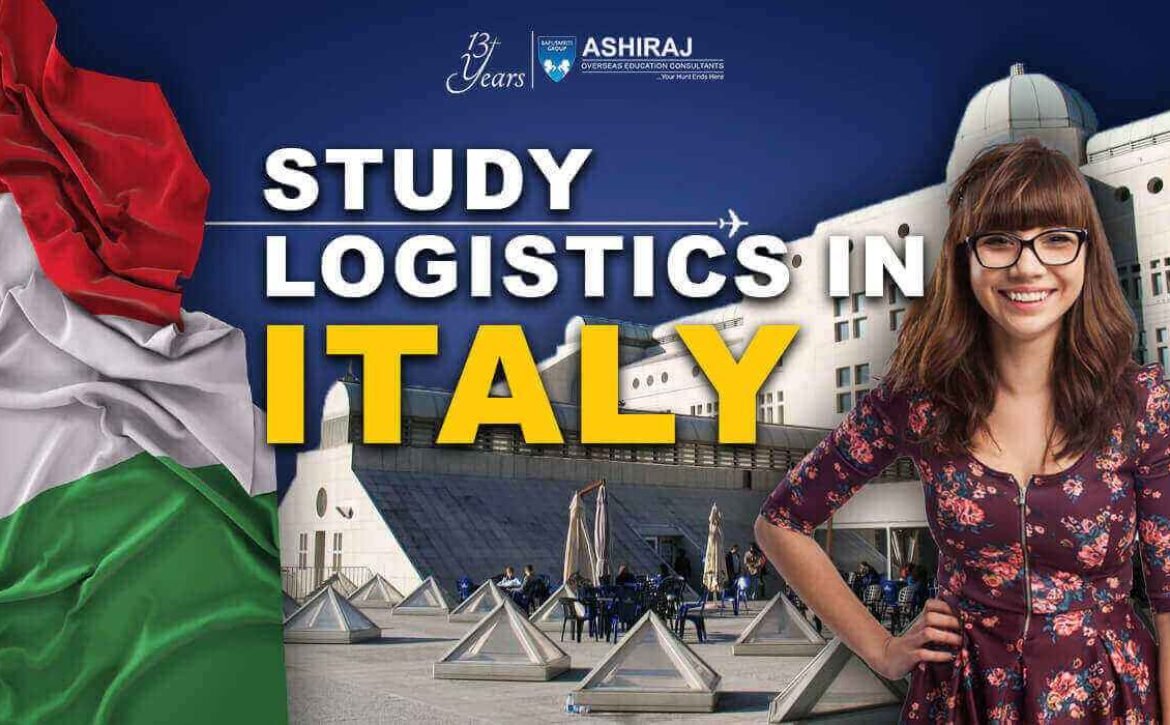
Logistics in Italy
Welcome to the dynamic world of Logistics in Italy, where the seamless integration of transportation, supply chain management, and cutting-edge technology converge to optimize the movement of goods and services. Italy, with its rich cultural heritage and strategic geographical location, plays a pivotal role in the global logistics landscape. From the bustling ports of Genoa and Venice to the efficient rail and road networks connecting major cities, Logistics in Italy is a symphony of precision and efficiency.
In Logistics in Italy, companies leverage state-of-the-art technologies to enhance inventory management, streamline distribution channels, and ensure timely deliveries. The meticulous orchestration of these logistical operations contributes not only to the economic prosperity of Italy but also facilitates international trade. In this intricate dance of supply and demand, Logistics in Italy stands as a testament to the nation’s commitment to excellence and innovation in the ever-evolving field of logistics.
Why to Study Logistics in Italy?
Italy, with its strategic location at the crossroads of Europe, offers a prime destination for those aspiring to delve into the field of logistics. Here are compelling reasons to consider studying Logistics in Italy:
- Geographical Advantage: Italy’s central location in Europe makes it a logistical hub, connecting major trade routes and facilitating efficient distribution networks.
- Rich Cultural Landscape: Studying logistics in Italy provides a unique opportunity to immerse oneself in a rich cultural environment, enhancing the overall learning experience.
- Cutting-edge Technology Integration: The logistics sector in Italy is at the forefront of technological advancements. Students have the chance to explore and apply innovative solutions in supply chain management.
- Global Trade Opportunities: Italy’s robust logistics infrastructure opens doors to global trade opportunities. Students gain practical insights into international logistics, preparing them for a globalized workforce.
- Industry Collaboration: Many renowned logistics companies have a strong presence in Italy, offering students valuable opportunities for internships and collaborations, fostering real-world skills.
Embark on a journey of academic and professional growth by choosing to study Logistics in Italy. The blend of cultural richness, strategic location, and technological advancements make it a compelling choice for those passionate about shaping the future of logistics.
Top Universities to Study Logistics in Italy
Rank | University | QS World University Ranking 2023 | Type of University | Average Annual Fees | Programs Offered |
1 | Politecnico di Milano | 170 | Public | €1,500 – €3,900 | Logistics and Supply Chain Management |
2 | Università Commerciale Luigi Bocconi | 202 | Private | €11,500 – €18,000 | International Management |
3 | Sapienza University of Rome | 210 | Public | €900 – €2,800 | Logistics Engineering |
4 | University of Bologna | 237 | Public | €900 – €2,800 | Business and Global Governance |
5 | Polytechnic University of Turin | 295 | Public | €1,000 – €3,700 | Transportation Engineering |
When considering pursuing logistics education in Italy, it’s essential to explore the top universities offering specialized programs. The table highlights the QS World University Rankings 2023, the type of university, average annual fees, and the programs offered by each institution. Notably, Politecnico di Milano, ranking at 170, provides a public option with reasonable fees for Logistics and Supply Chain Management. For those inclined towards private institutions, Università Commerciale Luigi Bocconi at 202 offers programs in International Management with higher average annual fees. Sapienza University of Rome, University of Bologna, and Polytechnic University of Turin also feature in the top 300, offering diverse programs related to logistics and business at varying fee ranges. This information serves as a valuable guide for prospective students interested in pursuing logistics in Italy, showcasing the diverse options available across reputable institutions.
Course Curriculum for Logistics in Italy
- Core Logistics Principles: The curriculum delves into fundamental logistics principles, covering topics such as supply chain management, inventory control, and distribution strategies. Students gain a comprehensive understanding of the logistics ecosystem.
- Transportation and Distribution Management: The program emphasizes the intricacies of transportation modes and distribution networks. From maritime logistics to efficient road and rail systems, students explore the key components of moving goods across various channels.
- Global Logistics Strategies: Given Italy’s prominence in international trade, the curriculum often includes a focus on global logistics strategies. Students learn to navigate the complexities of cross-border logistics, customs regulations, and international supply chain dynamics.
- Technology Integration: Logistics in Italy incorporates the latest technologies shaping the industry. Courses on data analytics, warehouse automation, and digital platforms equip students with the skills needed to optimize logistics processes.
- Environmental Sustainability: Reflecting the global trend towards sustainable practices, the curriculum addresses environmental considerations in logistics. Students explore green logistics, eco-friendly transportation, and strategies for minimizing the environmental impact of supply chains.
The Logistics in Italy program provides a well-rounded education, preparing students for the multifaceted challenges of the modern logistics landscape. With a focus on both theoretical concepts and practical applications, graduates are equipped to contribute effectively to the ever-evolving field of logistics.
Eligibility Criteria & Admission Requirements for Logistics in Italy
- Language Proficiency:
IELTS or TOEFL scores are essential to demonstrate proficiency in English. A minimum IELTS score of 6.5 or TOEFL score of 80 is commonly required.
- Standardized Tests:
Depending on the institution, GRE or GMAT scores may be required. A competitive score in either test strengthens the application. A GRE score of 310 or GMAT score of 600 is often considered favorable.
- Educational Background:
Academic certificates verifying completion of a relevant undergraduate degree are a prerequisite. A background in logistics, business, or a related field is typically preferred.
- Work Experience:
Some programs may require prior work experience in logistics or a related industry. Relevant experience enhances the application and provides practical insights during the course.
- Passport & Student Visa:
A valid passport is necessary for international students. Additionally, obtaining a student visa is crucial. The application process involves submitting admission letters, financial statements, and proof of accommodation.
Ensuring compliance with these eligibility criteria is vital for prospective students considering Logistics in Italy. Adhering to language proficiency, standardized test scores, educational background, and other requirements enhances the likelihood of a successful application and enrollment in a reputable logistics program.
Documents Required for Studying Logistics in Italy
- Passport:
A valid passport is a fundamental requirement for international students. Ensure it has sufficient validity beyond the duration of your planned stay.
- Letters of Recommendation (LOR):
Submit two Letters of Recommendation from academic or professional references. These letters provide insights into your character, capabilities, and suitability for the logistics program.
- Statement of Purpose (SOP):
Craft a compelling Statement of Purpose outlining your academic and career aspirations. Express your motivation for pursuing logistics in Italy and how it aligns with your goals.
- Curriculum Vitae (CV):
Prepare a comprehensive CV highlighting your educational background, work experience, skills, and achievements. Tailor it to showcase your relevance to the logistics field.
- Educational Certificates and Transcripts:
Include official high school transcripts and certificates, as well as any relevant higher education qualifications. These documents validate your academic background.
- Work Experience Certificate:
If applicable, provide a work experience certificate. This document verifies your professional background and can strengthen your application.
- Proof of Financial Resources:
Demonstrate your financial capacity to support your education and living expenses in Italy. This may include bank statements, sponsorship letters, or scholarship award letters.
Ensuring the meticulous preparation and submission of these documents is crucial for a successful application to Logistics in Italy programs. Adhering to the specified requirements enhances the credibility of your application and increases the likelihood of admission.
Admission Process for Logistics in Italy
- Research Institutions:
Begin by researching universities in Italy offering logistics programs. Consider factors such as rankings, faculty expertise, and program curriculum. Identify the ones aligning with your academic and career goals in the field of Logistics in Italy.
- Check Eligibility Criteria:
Review the eligibility criteria for each selected institution. Ensure you meet requirements related to language proficiency, standardized test scores (GRE/GMAT), educational background, and work experience. Adherence to these criteria is crucial for a successful application.
- Prepare Required Documents:
Gather necessary documents, including passport, Letters of Recommendation (LOR), Statement of Purpose (SOP), Curriculum Vitae (CV), educational certificates, transcripts, work experience certificates, and proof of financial resources. Thoroughly review and organize these documents for submission.
- Language Proficiency Test:
Take the required language proficiency test, either IELTS or TOEFL, and obtain the necessary score. This is a key component of the application process for Logistics in Italy programs.
- Standardized Tests:
If applicable, take the GRE or GMAT and achieve a competitive score. Some institutions may require these standardized tests for admission.
- Submit Online Application:
Complete the online application form for the chosen institutions. Provide accurate personal and academic information, and upload the required documents as specified.
- Await Admission Decision:
Once the application is submitted, await the admission decision. This process may take several weeks. Be proactive in checking your application status and responding to any additional requests from the university.
- Obtain Student Visa:
If admitted, initiate the process of obtaining a student visa. This involves submitting necessary documents to the Italian embassy, including admission letters, financial statements, and proof of accommodation.
By following these steps systematically, prospective students can navigate the admission process for Logistics in Italy smoothly, increasing their chances of securing a spot in their chosen program.
“Education is the most powerful weapon which you can use to change the world.”
Nelson Mandela
Cost of Logistics Course in Italy
- Tuition Fees:
Tuition fees for Logistics in Italy programs vary based on the university and the level of study. On average, international students can expect to pay between €1,500 to €18,000 per year. Public institutions often have lower fees compared to private ones.
- Living Expenses:
Consider the cost of living in Italy, including accommodation, food, transportation, and miscellaneous expenses. On average, students may budget approximately €8,000 to €12,000 per year to cover living costs.
- Accommodation:
Accommodation costs depend on the city and the type of housing chosen. Options range from university dormitories to private apartments. Monthly rent can vary from €300 to €800.
- Health Insurance:
Health insurance is mandatory for international students in Italy. The cost typically ranges from €150 to €200 per year, ensuring access to healthcare services during the study period.
- Books and Supplies:
Allocate funds for academic materials, books, and supplies. This expense varies but can average around €300 to €500 per year.
- Transportation:
Transportation costs include commuting within the city and occasional travels. Monthly public transportation passes may cost around €30 to €50.
Understanding and budgeting for these costs is essential for international students planning to pursue Logistics in Italy. It’s advisable to explore scholarship opportunities and part-time work options to help offset expenses during the course of study.
Scholarships for Logistics Courses in Italy
Scholarship Name | Amount Range | Application Deadline |
Italian Government Scholarships | Varies | April 30th |
Politecnico International Scholarships | €5,000 – €10,000 per year | January 31st |
Bocconi Graduate Merit Awards | €12,000 – €18,000 | Rolling Admissions |
University of Bologna Study Grants | €11,000 | March 31st |
EDISU Piemonte Scholarships | Up to €5,450 | June 30th |
Scholarships for Logistics in Italy
- Italian Government Scholarships:
Offered by the Italian Ministry of Foreign Affairs, these scholarships support international students pursuing higher education in Italy. The amount varies, covering tuition fees and living expenses.
- Politecnico International Scholarships:
Politecnico di Milano provides merit-based scholarships ranging from €5,000 to €10,000 per year for international students enrolling in master’s programs, including those in Logistics.
- Bocconi Graduate Merit Awards:
Bocconi University offers merit-based awards ranging from €12,000 to €18,000. These scholarships are competitive and are applicable to various master’s programs, including logistics-related disciplines.
- University of Bologna Study Grants:
The University of Bologna provides study grants worth €11,000 to deserving international students. The deadline for application is March 31st.
- EDISU Piemonte Scholarships:
EDISU Piemonte offers scholarships covering various expenses, including accommodation and meals, with amounts reaching up to €5,450. The application deadline is June 30th.
Exploring these scholarship opportunities can significantly alleviate the financial burden for students pursuing Logistics in Italy, fostering a conducive learning environment.
Career Opportunities After Logistics in Italy
Job Profile | Average Salary (EUR) |
Logistics Manager | €50,000 – €70,000 |
Supply Chain Analyst | €40,000 – €55,000 |
Transportation Coordinator | €35,000 – €45,000 |
Warehouse Operations Manager | €45,000 – €60,000 |
Procurement Specialist | €45,000 – €55,000 |
Career Opportunities After Logistics in Italy
Embarking on a career in logistics in Italy opens up diverse job opportunities with competitive salaries. Here are some key roles and their average salary ranges:
- Logistics Manager:
Responsible for overseeing the entire logistics process, from procurement to distribution, Logistics Managers can earn an average salary ranging from €50,000 to €70,000.
- Supply Chain Analyst:
Supply Chain Analysts play a crucial role in optimizing supply chain efficiency. With an average salary between €40,000 and €55,000, they analyze data to enhance logistics operations.
- Transportation Coordinator:
Coordinating transportation activities, Transportation Coordinators ensure timely and cost-effective deliveries. They earn an average salary of €35,000 to €45,000.
- Warehouse Operations Manager:
Warehouse Operations Managers oversee storage and distribution facilities, earning an average salary ranging from €45,000 to €60,000.
- Procurement Specialist:
Procurement Specialists manage the purchasing process, negotiating contracts and securing the best deals. Their average salary falls between €45,000 and €55,000.
Pursuing a career in logistics in Italy not only offers a wide array of job prospects but also provides competitive salaries, making it an attractive field for professionals seeking growth and stability.
Frequently Asked Questions About Logistics in Italy
Italy has strategic logistics hubs in cities like Milan, Genoa, Venice, and Rome, facilitating efficient transportation and distribution networks.
Yes, many universities in Italy offer logistics programs in English to cater to international students.
The duration varies, but most master’s programs in logistics typically last one to two years.
Commonly accepted tests include IELTS and TOEFL to demonstrate English proficiency.
Yes, various scholarships are available, including those offered by the Italian government and individual universities.
Graduates can pursue roles such as Logistics Manager, Supply Chain Analyst, Transportation Coordinator, and more with competitive salaries.
Yes, international students are usually allowed to work part-time during their studies, providing an opportunity to gain practical experience.
The cost varies depending on the city, but students can budget around €8,000 to €12,000 per year for living expenses.
After receiving an admission offer, students can apply for a student visa through the Italian embassy, submitting necessary documents including proof of enrollment and financial means.
Yes, Italy hosts various industry-specific events and job fairs that provide networking opportunities for logistics professionals and students.




